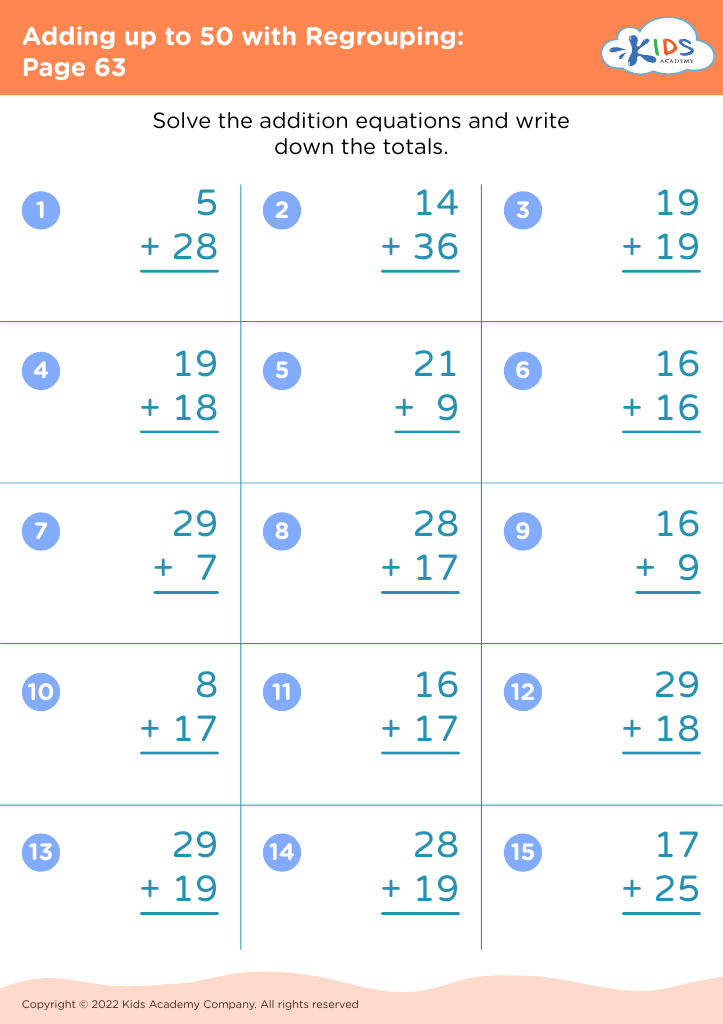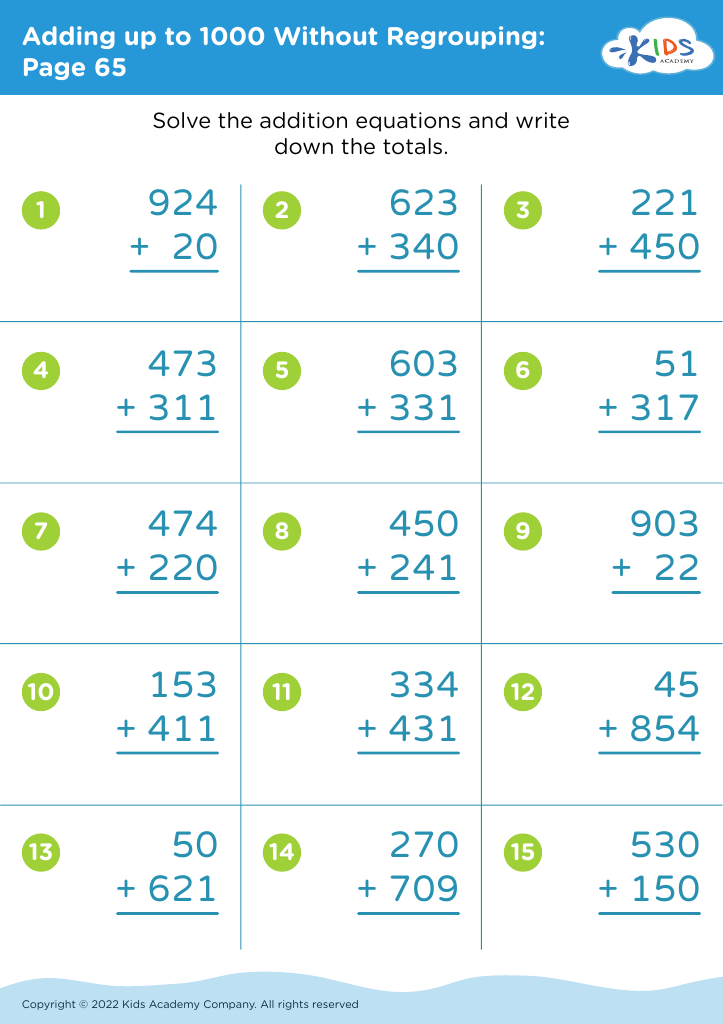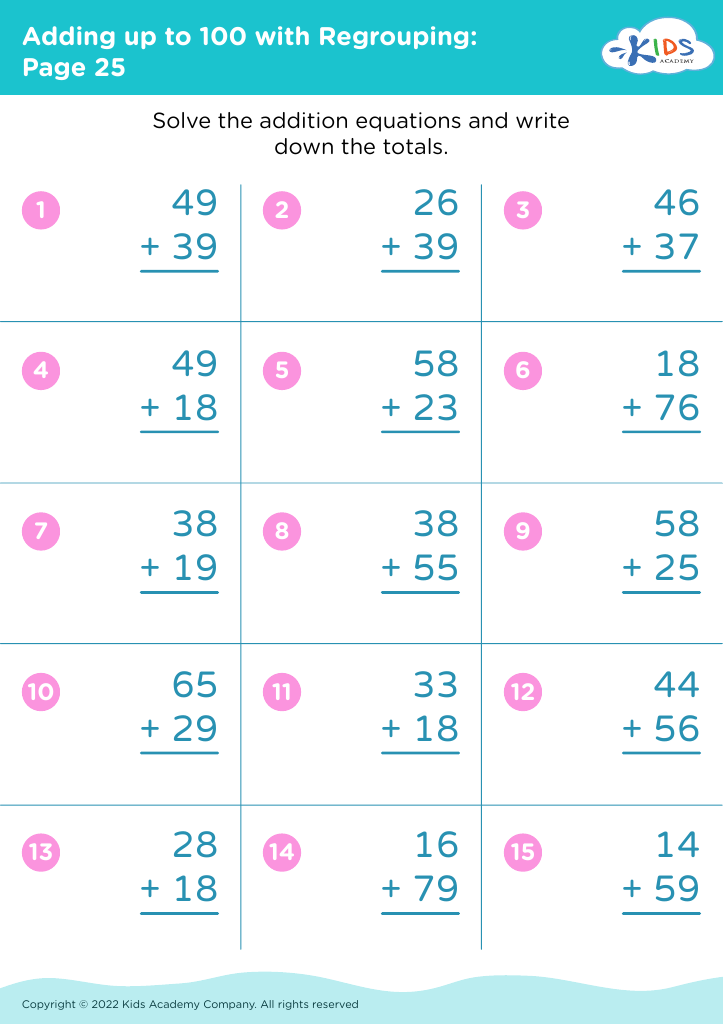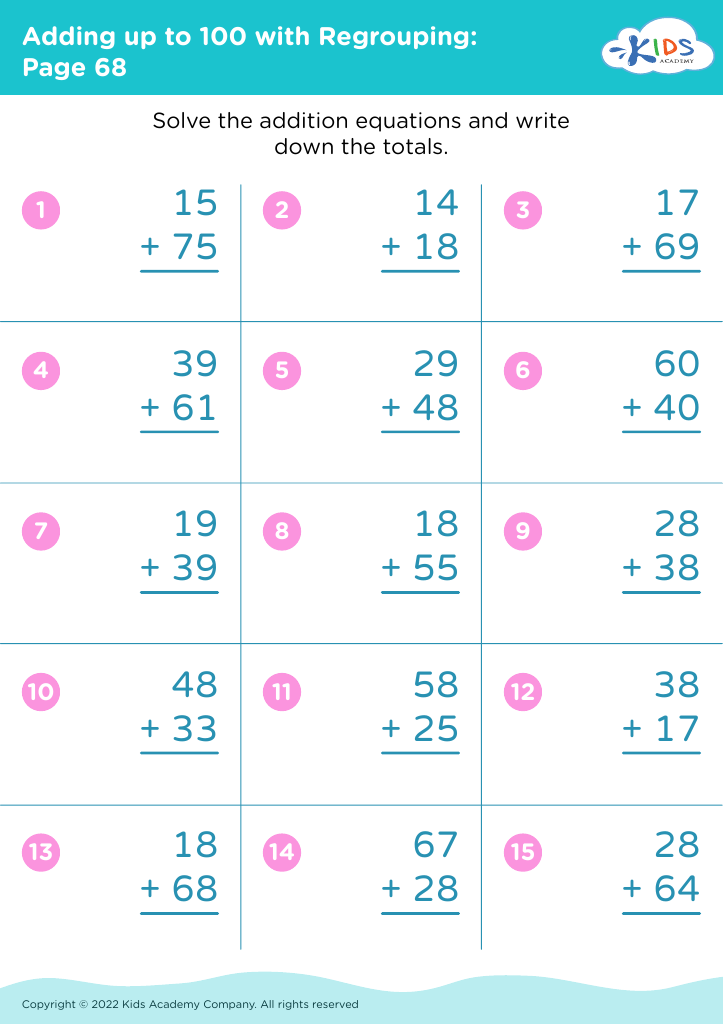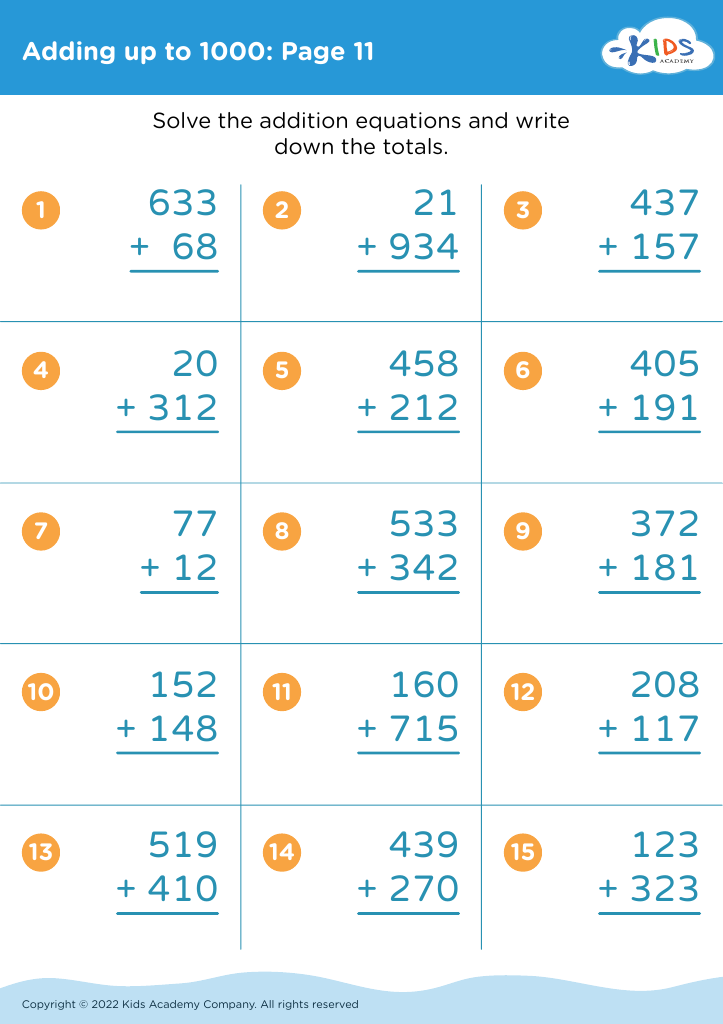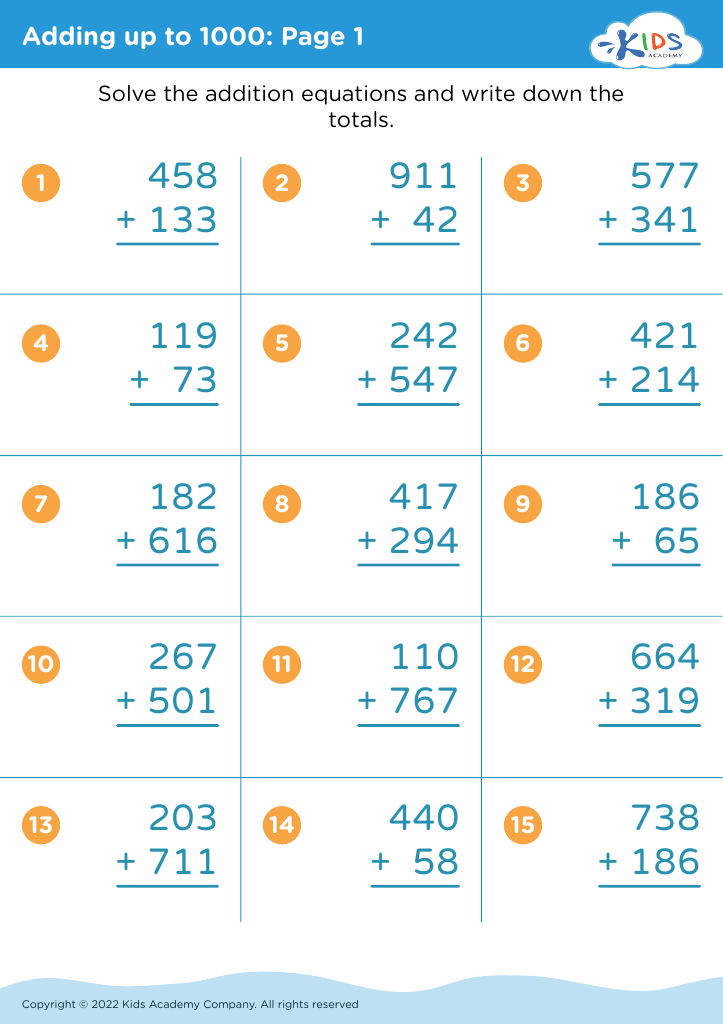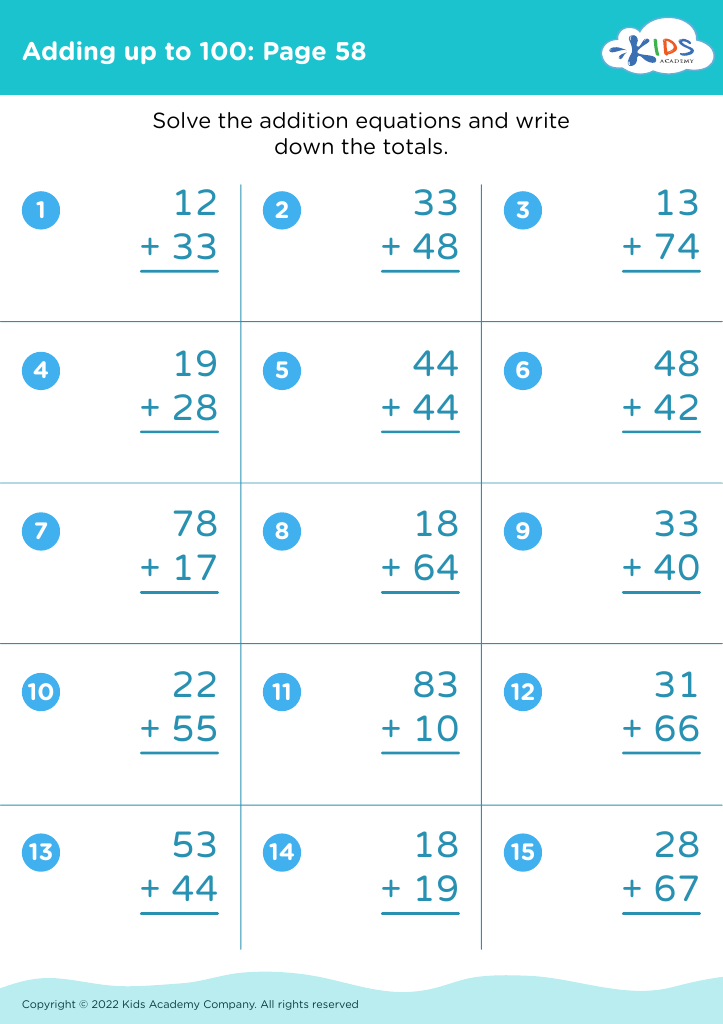Improve math skills Addition & Subtraction Worksheets for Ages 4-7
17 filtered results
-
From - To
Boost your child's math abilities with our targeted Addition & Subtraction Worksheets designed for ages 4-7! By focusing on fundamental concepts, these engaging printables enhance learning through fun exercises, helping young learners master essential skills effortlessly. Aligned with educational standards, our worksheets are perfect for building a solid math foundation, preparing kiddos for future academic success. With colorful activities and varying levels of difficulty, your child will enjoy learning at their own pace. Discover the perfect blend of enjoyment and education on Kids Academy to transform your child's learning experience today! Ideal for parents and teachers alike.
Improving math skills in addition and subtraction for ages 4-7 is crucial because these foundational abilities set the stage for future academic success and everyday problem-solving. At this age, children's brains are highly receptive to learning, and developing strong numeracy skills early on encourages a positive attitude towards math. Proficiency in basic arithmetic fosters confidence, reduces math anxiety, and provides the building blocks for more complex mathematical concepts they will encounter later in school.
Moreover, strong addition and subtraction skills enhance cognitive development by promoting logical thinking and pattern recognition. These abilities are also essential for daily activities, such as understanding time, managing money, and following multi-step instructions. Children with a solid grasp of basic math are more likely to succeed in other subjects, as many areas of learning intersect with numerical comprehension.
Parents and teachers play a vital role in nurturing these skills through engaging and hands-on activities like counting games, puzzles, and interactive stories. By investing time in these critical areas during the early years, parents and teachers help children build a love for learning and provide them with tools that will benefit them academically and practically throughout their lives.
